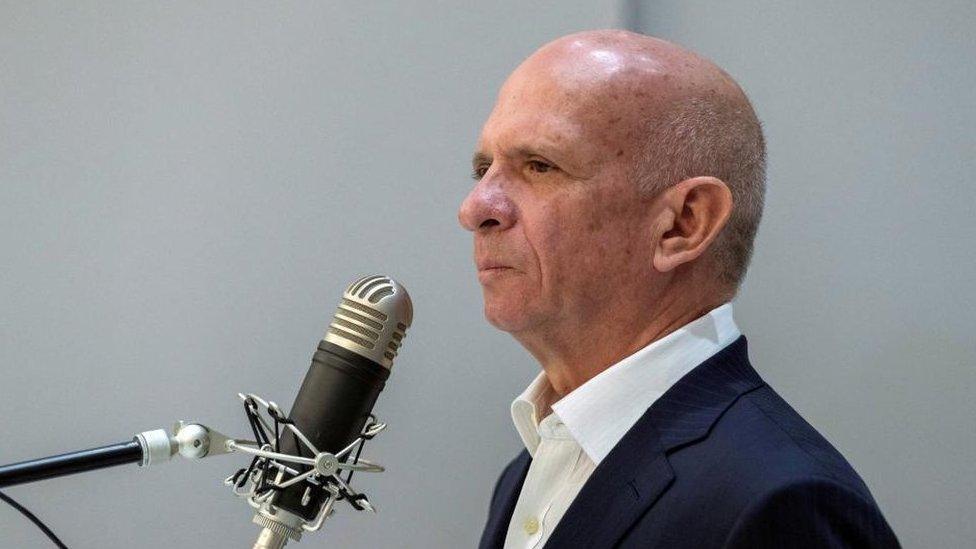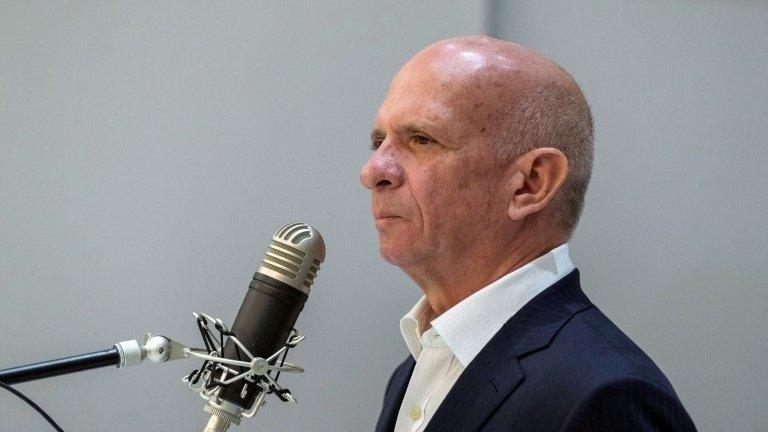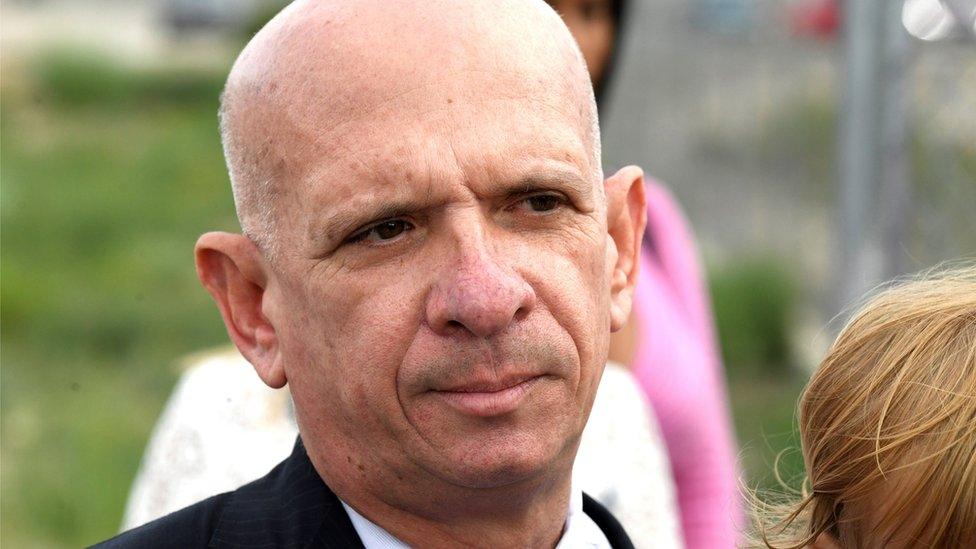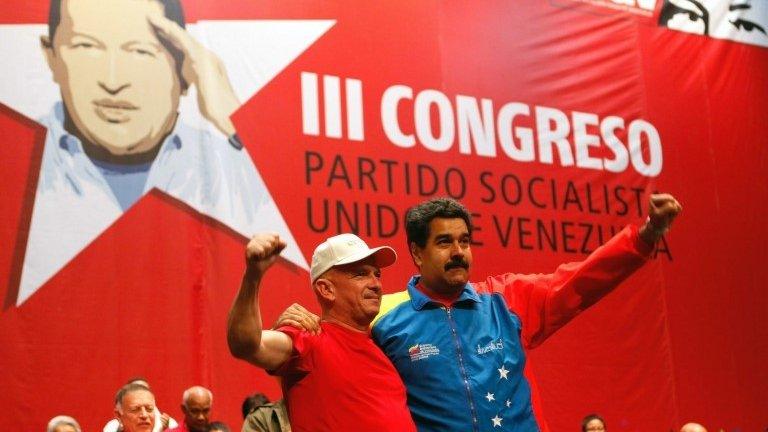Hugo Carvajal: Spain extradites Venezuela's ex-spy chief to US
- Published

Hugo Carvajal spent two years in hiding in Spain after a court ruled he should be extradited to the US
Venezuela's former head of military intelligence, Hugo Carvajal, is on his way to the United States where he faces charges of drug trafficking.
Mr Carvajal was a close ally of the late Venezuelan president, Hugo Chávez, and is thought to hold key information about his government and that of Chávez's successor, Nicolás Maduro.
The former spy chief fled Venezuela after he turned against Mr Maduro.
He was extradited from Spain, where he had spent years in hiding.
Mr Carvajal, whose nickname is El Pollo (the chicken), is expected to make his first court appearance within hours of landing in New York.
Prosecutors accuse the 63-year-old of having used his position as chief of military intelligence to protect shipments of cocaine from Venezuela bound for the US.
He also allegedly provided weapons for the Farc, a Colombian Marxist rebel group which reportedly has camps in neighbouring Venezuela.
He is accused of forming part of a drug-smuggling organisation dubbed the Cartel of the Suns, which prosecutors say is made up of high-ranking members of the Venezuelan military.
Mr Carvajal has denied any wrongdoing and waged a long and ultimately unsuccessful legal battle against his extradition to the US.
As head of military counter-intelligence from 2004 to 2011, he was one of the most powerful men in Venezuela and a confidant of the president at the time, Hugo Chávez.
His legal troubles date back to 2011, when a US court first indicted him on drug trafficking charges.
For years, he managed to avoid extradition to the US.
In 2014, he was arrested at the request of the US state department on the Dutch Caribbean island of Aruba, where he had been sent as Venezuela's consul general.
But his arrest was ruled illegal because he held a diplomatic passport and he was given a hero's welcome by Venezuelan President Nicolás Maduro upon his return to Caracas.
Five years later, however, he turned against President Maduro and backed opposition leader Juan Guaidó when the latter declared himself interim president.
Mr Carvajal urged the military to back Mr Guaidó and was forced to flee Venezuela when the armed forces remained loyal to President Maduro.
He managed to escape by boat to the Dominican Republic and settled in Spain.
There, he was arrested on the request of the US authorities. But he would not stay in custody for long before a Spanish court rejected the US's extradition request and released him.
A cat-and-mouse game with the police forces of several nations followed, lasting several years.
When police officers came to re-arrest him after a higher court had overturned the decision to release him, Mr Carvajal had vanished.
He was finally tracked down to a flat in Madrid, after he had been in hiding for two years.
Police said he had avoided leaving the apartment, even disguising himself by wearing a wig and a fake moustache when he went out on the balcony to smoke.
More legal battles followed in which he tried to avoid being extradited to the US and repeatedly demanded being allowed to leave custody.
But after the European Court of Human Rights last week denied a request by Mr Carvajal to stop Spain from extraditing him, his fate was sealed and Interpol was ordered to take him to the US.
US authorities will be hoping that once he is there, Mr Carvajal - who is believed to have intimate knowledge of the workings of the Chávez and Maduro governments - will be co-operative.
Other high-ranking Venezuelan former officials who were tried in the US, such as former treasurer Alejandro Andrade, have struck plea deals and seen their sentences reduced in exchange for a guilty plea and the promise to "provide truthful and complete information and testimony".
Related topics
- Published20 October 2021

- Published14 November 2019

- Published17 September 2019

- Published28 July 2014
